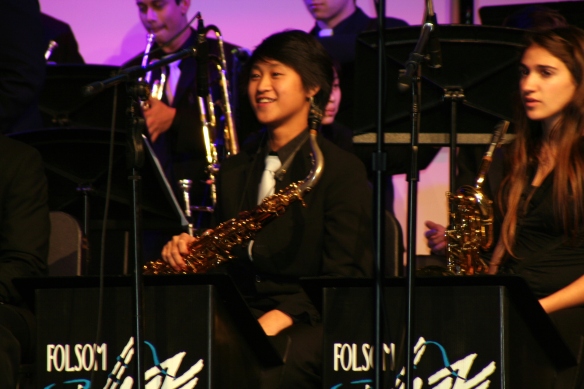So it has been quite a few weeks that I wrote anything. Over this period of time, I have been busy balancing school and jazz as a senior in high school. Working hard to finish my last semester of high school, I have found it quite challenging yet it has been going by very quickly. Since I last shared my thoughts here, “Jazz in Perspective” has spread around the web. My article on Walter Smith III was featured on Nextbop.com, a blog dedicated to showcasing the next generation of jazz artists. Check out my post “Artist Spotlight: Walter Smith” on Nextbop.
In addition, the “Jazz in Perspective” has been listed on many jazz websites and blogs like All About Jazz, Elements of Jazz, the Jazzerati, and JazzTimes. You can also find “Jazz in Perspective” on Facebook and Twitter.
Lastly, just recently, I performed with the Valley Christian High School Jazz Ensemble and the Valley Christian Jazz Combo at the 2011 Folsom Jazz Festival. This festival gathers some of the top groups in Northern California to compete. Lately, the festival has been drawing in well-known artists and clinicians like the Sacramento Jazz Orchestra, Brian Lynch, University of North Texas One O’Clock Lab Band, and Kevin Bryan (lead trumpet for Harry Connick Jr.). Check out these videos of my performances at the festival below.



 Here are some comments meant for any serious student of jazz, based on my years as a player and a teacher as well as drawing liberally from my talks with Dave Liebman.
Here are some comments meant for any serious student of jazz, based on my years as a player and a teacher as well as drawing liberally from my talks with Dave Liebman. This is my new official artist website. Here, you will find performance dates, news updates, music recordings, videos, pictures, and more information.
This is my new official artist website. Here, you will find performance dates, news updates, music recordings, videos, pictures, and more information.